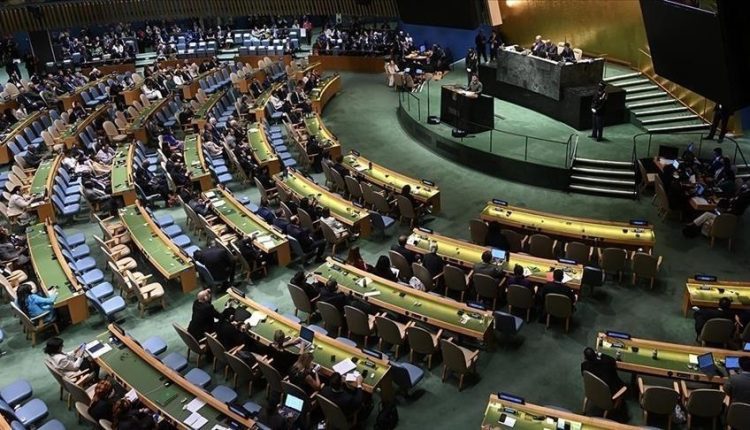US Urges Broader Reforms from Syrian Authorities Amid Signs of Positive Engagement
By Kardo Roj
DAMASCUS, Syria (North Press) – The United States’ ambassador to the United Nations welcomed recent actions by Syria’s new governing authorities as a “positive step” during a UN Security Council session on Friday, but stressed that “more must be done” to ensure regional stability and accountability within Syria.
Speaking from UN headquarters in New York, the ambassador emphasized the importance of Syria preventing any cross-border threats and called for the expulsion of all foreign fighters from Syrian territory, singling out concerns over Iran’s continued influence. The U.S. diplomat also reiterated Washington’s long-standing demands for the complete destruction of Syria’s chemical weapons stockpiles and for holding accountable those responsible for past human rights violations.
During the same session, UN Special Envoy for Syria Geir Pedersen underlined the urgent need for a comprehensive and inclusive political solution. “Syria still lacks a viable framework for political transition,” he noted, adding that too much power remains concentrated, hindering progress toward reconciliation.
Pedersen welcomed Syrian Foreign Minister Asad al-Shibani’s stated commitment to regional stability and international engagement, but warned that systemic challenges remain unresolved.
“The violence and instability in the coastal region continue to undermine trust,” Pedersen said, referring to recent reports of human rights abuses in areas such as Latakia. “We have received harrowing testimonies from members of the Alawite community,” he added, in a rare public acknowledgment of suffering among groups traditionally aligned with Damascus.
He called on the Syrian government to publicly release the findings of its investigative committee on violations in the coastal region, urging that the process meet international standards of transparency and justice.
Pedersen also criticized what he described as Israel’s “unjustified” military actions in Syria, stating they pose serious risks to Syria’s sovereignty and undermine diplomatic efforts. “There is ample space for diplomacy, yet Israeli violations persist and obstruct the transition process,” he said, renewing calls for Israel to withdraw from Syrian territory and comply with international resolutions.
The remarks came amid a backdrop of ongoing Israeli airstrikes targeting Iranian-linked sites across Syria—actions that have drawn condemnation from Damascus and raised regional tensions.
Representing Damascus at the session, Foreign Minister Asad al-Shibani struck a conciliatory tone, stating, “The international community must now listen to the Syrian people’s aspirations. We are open to dialogue and regional cooperation.”
Al-Shibani argued that the rationale for international sanctions has diminished, saying, “With the original causes now gone, these sanctions should be lifted. Syrians deserve the opportunity to rebuild and restore dignity.”
He expressed hope for renewed ties with neighboring countries, especially Iraq, citing overlapping interests and shared regional challenges. While noting that Syrians “deserve the world’s trust,” he did not directly address the criticism of ongoing human rights abuses or centralization of power.
While the UN session primarily focused on the political track in Damascus-controlled areas, developments in northeast Syria remain closely watched by international observers. The Autonomous Administration of North and East Syria (AANES), along with the Syrian Democratic Forces (SDF), continues to offer a model of decentralized governance and internal stability—largely insulated from the power struggles dominating the western part of the country.
The region, which has gained recognition for its counterterrorism efforts and local peacebuilding initiatives, has yet to be formally included in UN-led political dialogues. However, its stability, especially in contrast to more volatile areas, underscores the growing complexity of Syria’s political landscape.

